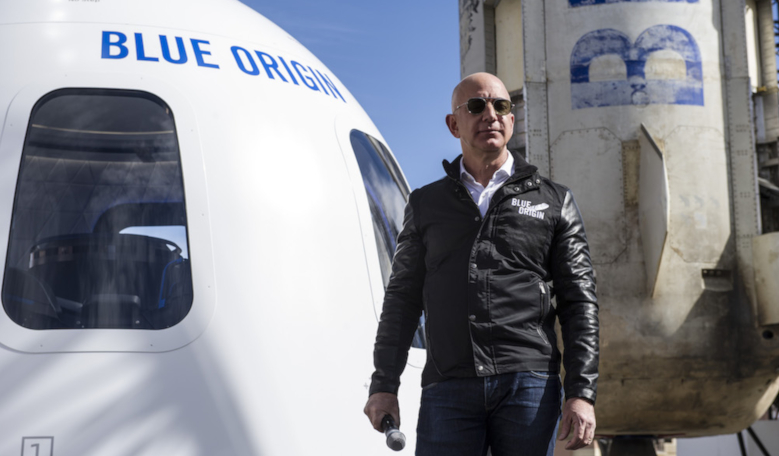According to The National, a media news outlet published in Abu Dhabi, United Arab Emirates, the UAE is entering into a space tourism partnership with Jeff Bezos’s Blue Origin aerospace company.
The deal would see the possible construction of a spaceport to allow space tourism flights to lift off from a desert location in the UAE.
Earlier in the week during an interview with The National, Brent Sherwood, senior vice president of advanced development programmes for Blue Origin, said the UAE was an “obvious choice” for a spaceport and that it was looking to expand its launch sites from the current one in El Paso, Texas.
Sherwood said that after spending the night in Sharjah, the third-most populous city in the United Arab Emirates, after Dubai and Abu Dhabi, he thought it was “very promising to think about areas here,” now that Blue Origin is operational for tourism.
Sherwood has been at the International Astronautical Congress (IAU) this week, which is taking place at the Dubai World Trade Centre until 29 October.
After meeting with Abdulla bin Touq, Minister of Economy at the UAE, the two agreed to develop a plan that would accelerate the Emirates economic development through space activities, including space tourism.
“The ministry is working with its partners to establish an open economic ecosystem that attracts investments to target sectors and stimulate innovative companies to support sustainable development and create an advanced investment environment,” Mr bin Touq said.
“Through this collaboration, we look forward to leveraging Blue Origin’s leading expertise in space manufacturing and space and low Earth orbit flight services to support the UAE’s plans.”
To date, Blue Origin has flown two all civilian crew missions to the edge of space from the company’s launch pad in West Texas; the latest included Star Trek actor William Shatner, who at 90 years old, became the oldest person to cross the Kármán line – the imaginary boundary 100 kilometres (62 miles) above Earth's mean sea level that is internationally recognised as the beginning of outer space.
With a GNI (gross national income) ranking of eighth in the world (GNI is an indicator of a country’s economic output and is a measure that captures all economic activity within a nation’s borders in addition to the wealth created by nationally-owned entities operating in other countries) and with a Gross National Product (GNP) reported at 358.406 USD bn in Dec 2020, the UAE is seen as one of the richest countries in the world.
The UAE is also now home to several major space companies and has a total foreign trade in aerospace vehicles and their parts reaching Dh190 billion, say The National, as such, Blue Origin would be well placed to capitalise on what some see as an industry that for the foreseeable future, at least, is primarily funded by and for the very rich.
But, says Sherwood, prices are expected to decrease once reusable orbital vehicles become more common. “The first seat was result of an auction and that was a lot of money, but the seats we’ve sold since were not sold for that price, they were sold for less."
“We have a database of interested passengers and we are observing that price point come down. It’s very exciting because we’ve only flown two human missions so far and we’re already seeing that decrease. That will continue as reusable orbital vehicles get more common," Sherwood said.











